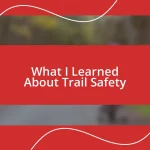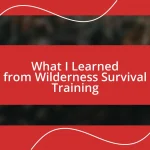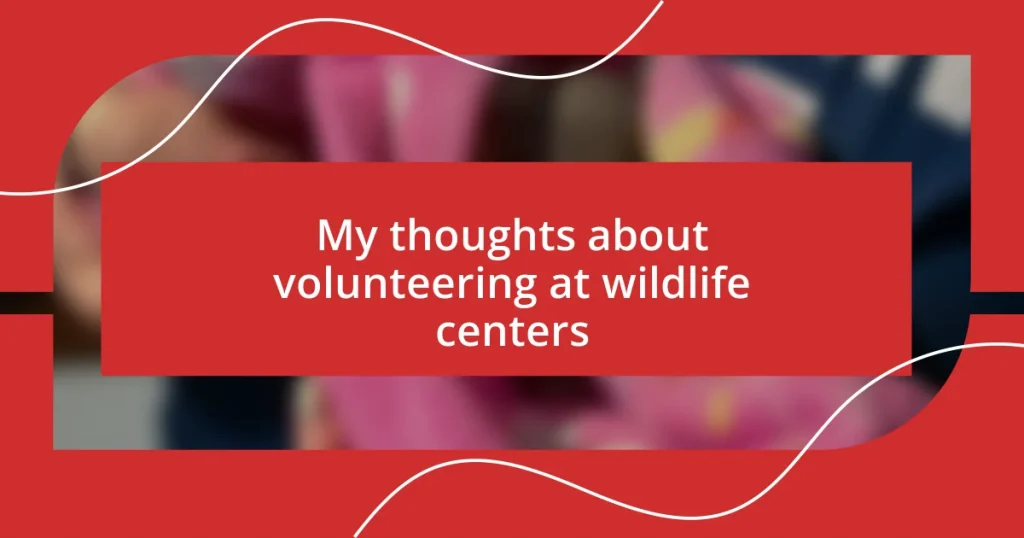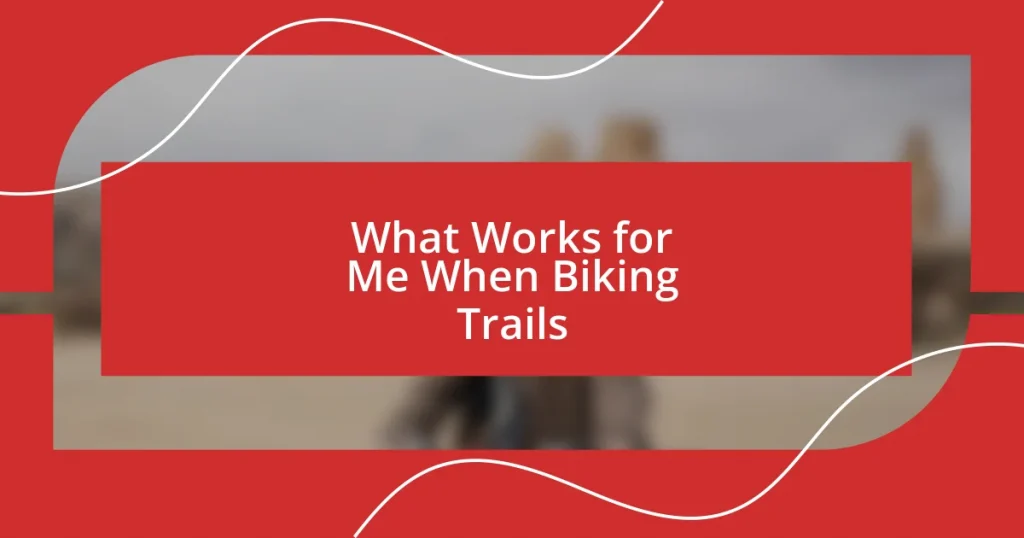Key takeaways:
- Wildlife volunteering fosters personal growth and emotional connections with animals, leading to transformative experiences.
- Volunteers develop essential skills such as communication, problem-solving, and empathy through hands-on tasks and challenges.
- Choosing the right wildlife center enhances the volunteering experience, emphasizing the importance of mission alignment and team camaraderie.
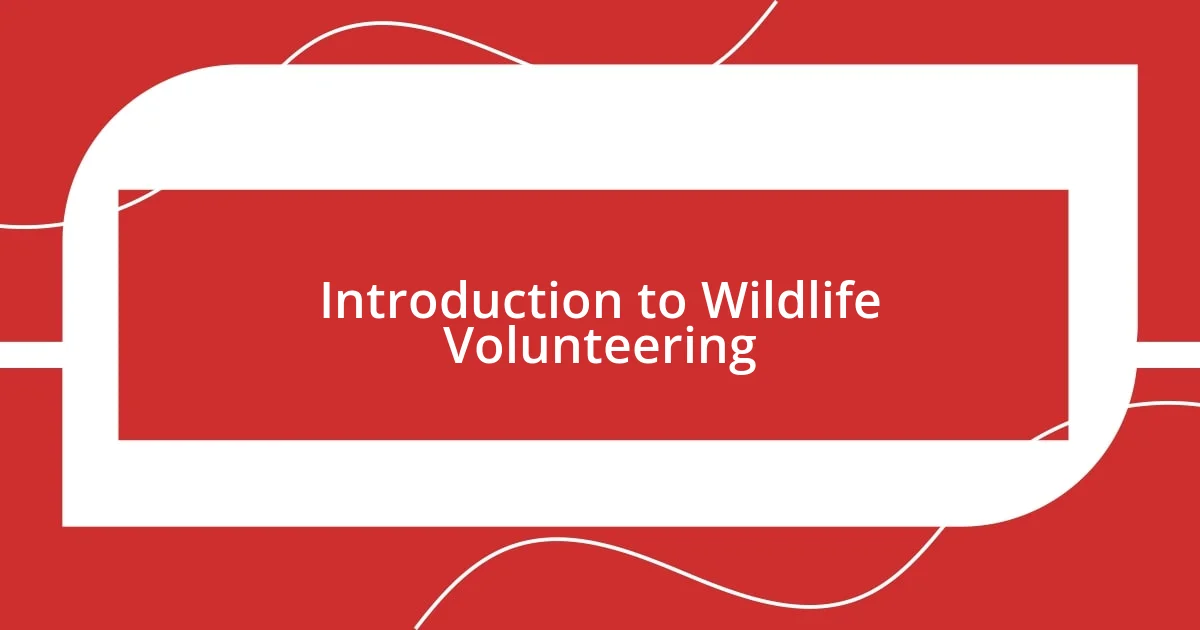
Introduction to Wildlife Volunteering
Wildlife volunteering is more than a noble endeavor; it’s a transformative experience that connects you with nature and its inhabitants. I remember the first time I stepped into a wildlife center—I was struck by the sheer vibrancy of life all around me. In that moment, I couldn’t help but wonder: how could I make a tangible difference in the lives of these animals?
Engaging in wildlife volunteering often leads you down a path of self-discovery, as you immerse yourself in the daily lives of creatures big and small. There’s something profound about caring for a wounded bird or observing the antics of playful otters. Have you ever stopped to think about the impact your efforts can have, not just on the animals you help but on your personal growth as well?
Each day at a wildlife center presents new challenges and heartwarming victories, which makes the experience uniquely rewarding. Whether you’re feeding animals, cleaning enclosures, or participating in rescue efforts, the connection you build with nature is unlike any other. I can still feel the warmth of a rehabilitated animal snuggling into my hands—moments like these are what true wildlife volunteering is all about.
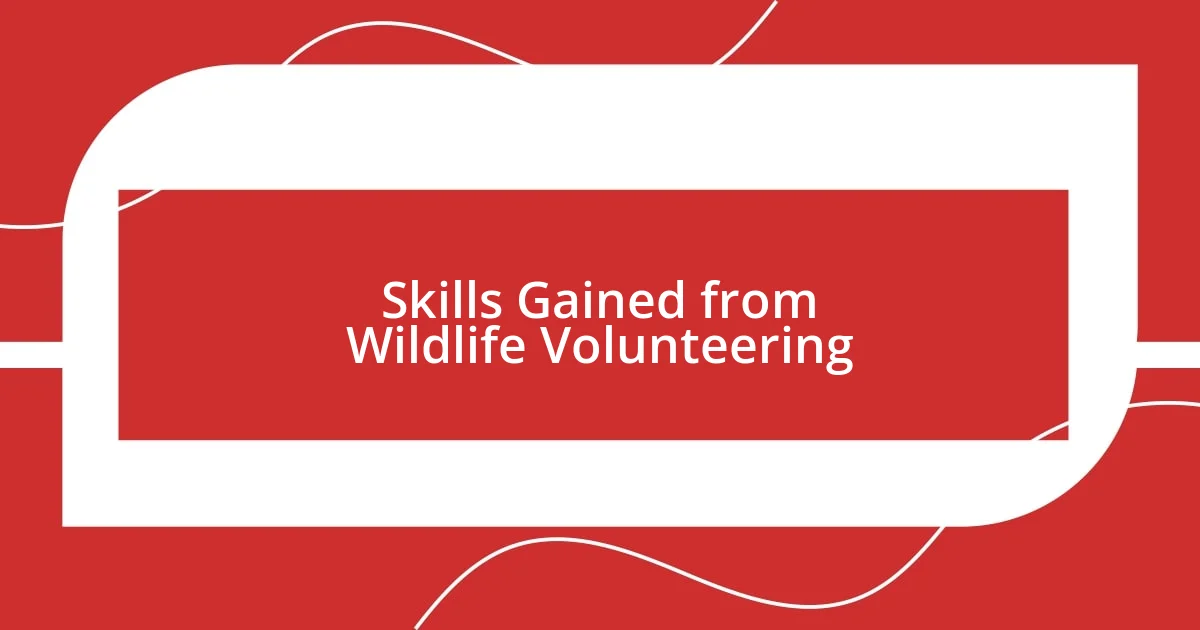
Skills Gained from Wildlife Volunteering
Volunteering at wildlife centers has honed my communication skills in ways I never anticipated. I recall a day when I had to explain care procedures to new volunteers. It felt a bit daunting at first, but as I demonstrated how to handle delicate creatures like baby raccoons, I realized that clear communication was crucial for their safety and well-being. This experience not only boosted my confidence but also taught me the importance of teamwork in a high-stress environment.
Another skill I gained was problem-solving. There was an incident where a sudden storm caused a disruption at the center. Animals had to be safely secured, and some enclosures required urgent repairs. Relying on my quick thinking and the support of fellow volunteers made it clear how essential adaptability is in wildlife care. The chaos transformed into a lesson in collaboration and resilience that I won’t forget.
Moreover, volunteering deepened my empathy towards creatures and conservation efforts. I vividly remember caring for an orphaned fawn; each tiny breath felt like a shared journey of survival. The emotional connection I developed with the animals heightened my understanding of their needs, driving home the importance of compassion in our interactions with all living beings.
| Skills | Descriptions |
|---|---|
| Communication | Improved through teaching others and ensuring animal safety. |
| Problem-Solving | Enhanced by adapting quickly to unexpected challenges, such as storms. |
| Empathy | Deepened through caring for animals and understanding their experiences. |

What to Expect When Volunteering
When volunteering at a wildlife center, you can expect a diverse range of tasks and experiences that keep you on your toes. One day might have you preparing food for the animals, while the next involves assisting with educational programs or participating in rescue missions. I remember a time when I was part of a team that rushed to help a distressed sea turtle on the beach. The adrenaline was high, but the sense of purpose was even higher. The joy of seeing that turtle safely returned to the waves was indescribable and deeply fulfilling.
Here’s a glimpse of what your days might entail when volunteering:
- Daily Care: Feeding animals, cleaning enclosures, and much more. This routine is crucial for the animals’ health.
- Rescue Operations: Engaging in local wildlife rescues can happen unexpectedly but brings a thrilling sense of urgency.
- Education and Outreach: Assisting in workshops to educate the public about wildlife conservation creates a powerful connection to the community.
- Maintenance Work: Helping with shelter upkeep is important for both the volunteers and the animals they care for, ensuring a safe environment.
- Emotional Connections: Building bonds with the animals can lead to unforgettable moments that touch your heart and inspire you.
Every day brings new surprises and emotional highs, reminding me just how special this work truly is. The connection with animals is not just physical; it’s deeply emotional, grounding me in the importance of conservation and compassion.
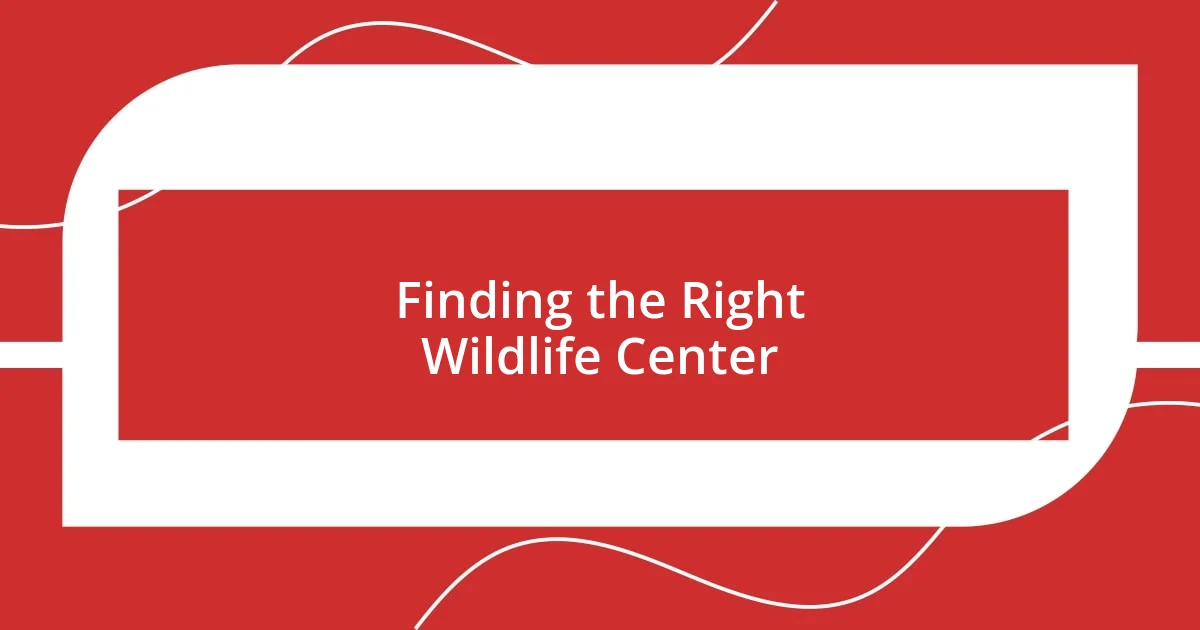
Finding the Right Wildlife Center
Finding the right wildlife center is crucial for a fulfilling volunteering experience. As I researched various centers, I discovered that each one has its unique focus, whether it’s rehabilitation, education, or research. Reflecting on my initial searches, I remember feeling overwhelmed by the options. However, aligning my values with the mission of a center made the decision much clearer.
When I finally visited a center, I noticed the atmosphere and the people who worked there. It was striking how passionate and committed the staff seemed. Conversing with them revealed not only their dedication to wildlife but also their genuine warmth towards volunteers. This connection was something I hadn’t anticipated, but it ultimately influenced my choice. Isn’t it important to engage with environments where the people share your love for nature?
I also found that volunteering at a smaller center offered a more hands-on experience. I vividly remember participating in a release program for rehabilitated birds. Each release was accompanied by a mix of excitement and sadness, watching them soar into the sky. This personal touch made my contributions feel significant, affirming that the right wildlife center isn’t just about location but about the moments and memories created there.
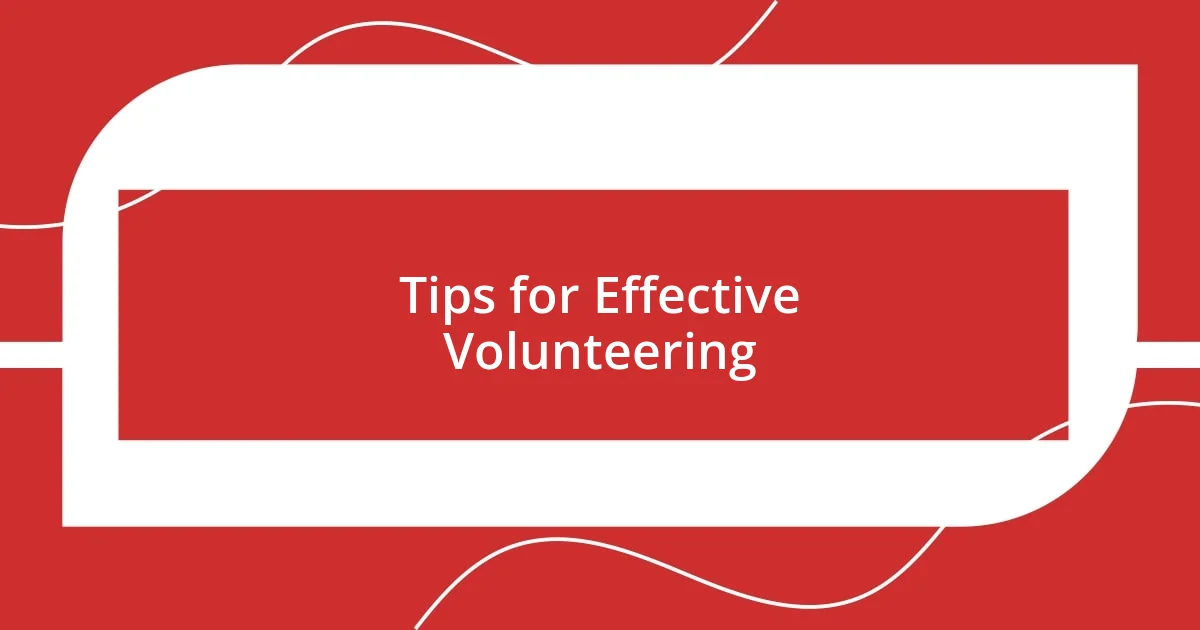
Tips for Effective Volunteering
Volunteering effectively requires a proactive mindset. I learned early on that asking questions is key to maximizing my impact. Whether it’s inquiring about animal care protocols or seeking tips from seasoned volunteers about engaging with the public, being curious opened doors to deeper insights. Has there ever been a moment when you felt you missed an opportunity just because you didn’t ask the right question?
Another tip is to be adaptable. I recall a day when my planned tasks changed dramatically due to an unexpected rescue. Instead of feeling frustrated, I embraced the shift, leading to a rewarding experience helping an injured fox. Flexibility not only enhances your contributions but also allows you to experience the unpredictability that makes wildlife volunteering so thrilling. How often do you remind yourself that some of the best memories come from those unplanned moments?
Building strong relationships within the team is equally vital. I remember the sense of camaraderie that developed during long days of maintenance work. Sharing stories, laughs, and even the occasional challenge bonded us in ways that made the hard work enjoyable. When you form connections with fellow volunteers and staff, you’ll find that your experience becomes richer and more fulfilling. Have you ever noticed how teamwork transforms a daunting task into a rewarding adventure?






